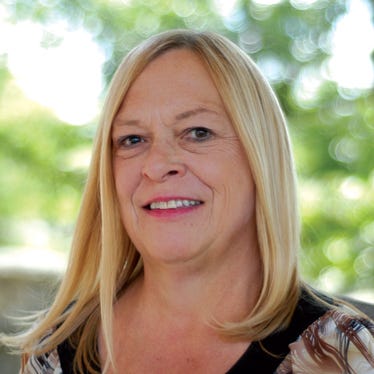
Roger Johnson, National Farmers Union president, said folks are “really naïve” if they believe that trade with China is going to “get back to normal” anytime soon.
Speaking to the annual convention of North American Agricultural Journalists, Johnson said times are very difficult in agriculture and it is important to realize that net farm income is half of what it was six years ago, and that the consolidation that has been underway for decades in the agricultural industry is escalating.
“Especially among the younger people who came back to the farm in the last 10 years or so, there is a real risk of not making it through this downturn,” he said. “The disruption in trade has real consequences, and ag is one of the few sectors of the American economy that has consistently had a trade surplus.”
Johnson said he fears that trade has been permanently damaged by the rhetoric and the actions of the Trump administration.
“Other nations are not going to just forget that Trump spends vast amounts of time insulting their leaders,” he said.
Johnson said the farmers he’s been talking with are anxious to see the farm bill implemented, especially the new relief for the dairy industry, where consolidation is taking place faster than in any other sector of agriculture.
He also derided the idea — promoted by U.S Secretary of Agriculture Sonny Perdue — that farmers can adjust what they plant to match the impact of tariffs and trade disruption on specific crops, such as soybeans.
“It doesn’t take much over-production to create lows or much shortage to make highs,” Johnson said. “But when prices are low, there is a tendency for a farmer to think, ‘I need more bushels to break even,’ and when prices are high he thinks, ‘I need to plant more of that crop to make money.’ Both of those realities made the idea that planting decisions can solve the problem impractical.”
Johnson also addressed the impact of additional consolidation of agribusiness giants such as the recent Bayer-Monsanto, Dow-DuPont and ChemChina-Syngenta mergers, saying the consolidations mean higher prices for inputs for farmers as competition decreases.
“Over time you get less innovation and fewer choices,” he said. “You may have a number of choices available, but the choices are one variety with one, two or three stacks of traits, rather than a number of varieties for different seasonal conditions, soil differences and climate change. So, farmers pay more and get less.”
Caution on hemp
Johnson said there is wide interest in hemp but cautioned that farmers should not race to plant the newly legal crop without doing some homework.
“There is a significant retail market for the CBD oil products,” he said. “But in many areas, there are no processing plants. And while a lot of products such as fiber and paper can be made from hemp, there are no processing plants for those products either — and no way of determining how difficult it will be to gain a share in those markets in competition with the raw materials from which they are currently made.”
Johnson said he sees the excitement in hemp coming from two main directions.
One, prices for conventional crops such as corn and soybeans are in the toilet. Two, climate change is creating challenges in some areas that are seeing new disease pressure and looking for ways to combat those.
“Hemp has the capacity, eventually, to solve some of those challenges, but it’s going to take a while for it to become established,” he said. “My advice to farmers is to do your homework and know where you are going to sell your crop before you plant it.”
What kind of society do we want?
Johnson said the rapid consolidation in dairy requires making tough choices in legislation.
“If we don’t make a deliberate decision to protect the smaller farmers at the federal level, it isn’t going to happen at the state level,” he said. “If the small guys go out of business, it won’t have much impact on prices, but as a share of the total market, they don’t produce that much.”
It’s more a matter of what kind of rural society we want to have, Johnson said: “Or do we want to just carve out big chucks of the country and put in CAFOs and huge farming operations? Which is better for society as a whole?”
Johnson said he was on a panel in the United Kingdom with a producer from Australia when that question came up.
He said the Australian panelist said his country went down the “free trade, cut all subsidies” road and let the consolidation occur.
The result was much larger farms with a much smaller population. Families found that they were driving two hours to take their kids to school and now most of the kids are not growing up on the farm. They are in boarding school, he said.
“That panelist said he thinks the model of the UK, which heavily subsidizes agriculture to keep small farms in business, is a better model,” he said.
He said the decision in the U.S. will play out first in dairy.
“I’m not sure that there is a big difference economically,” he said. “But we need to make it clear to consumers that the impact is societal.
About the Author(s)
You May Also Like






